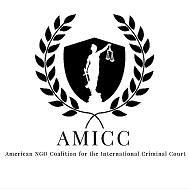The forcible removal and transfer of civilian populations,
and detaining them constitutes a crime against humanity under the International
Criminal Court’s Rome Statute. Statute expresses the standing international law
standard that this is a crime that applies to all nations without exception.
The Court must enforce it according to that standard although its jurisdiction
may not reach all offenders. These acts as part of systematic attack against
those individuals seen to be indirectly associated with the terrorist group IS.
The topic of this blog is deportation, forcible transfer and imprisonment of
sections of the Iraqi civilian population and how the Court might address those
responsible for this crime.
Human Rights Watch (HRW) has recently spoken out against the
use of ‘rehabilitation camps’ in Iraq. HRW argues that these camps, designed to
rehabilitate family members of alleged Islamic State (IS) members, have
amounted to evictions and are a form of collective punishment. HRW claims that
at least 170 families are victims of Iraqi Security Forces evictions, as well
as being subject to threats and attacks. These rehabilitation camps have been
in response to a Mosul District Council direction, issued on 19 June 2017, that
IS families are to receive psychological and ideological rehabilitation. Soon
afterwards, a rehabilitation camp in Bartalla was opened. HRW visited this camp
to conduct interviews, revealing that no one detained had said they were
accused of any wrongdoing and did not know when they would be allowed to leave.
HRW also noted that the families were composed of mostly women and children.
Bartalla 'Rehabilitation' Camp.
Image sourced from Human Rights Watch.
<https://www.hrw.org/news/2017/07/13/iraq-alleged-isis-families-sent-rehabilitation-camp>
This is not the first time HRW has reported this kind of
incident in Iraq; in March HRW reported the displacement and detention of 125
suspected IS families and in January reported on Iraqi provincial government’s
decree authorizing the demolition of homes of anyone proven to have
participated in terrorism activities. However, this most recent event of
institutionalizing individuals based on assumed criminality is a new
development.
Iraq is not a State Party to the Rome Statute, and therefore
the International Criminal Court’s (ICC) jurisdiction would have to come from
an unlikely referral to the United Nations (UN) Security Council. However, with
territorial jurisdiction the Court would be able to try these actions by the
Iraqi Government as a crime against humanity under Art 7 of the Rome Statute. If
these Iraqi ordinances and decrees were applied without due process. This might
constitute an additional crime against humanity.
Although the Court’s jurisdiction is largely limited to states
parties to the statute, Art 12(2) may provide an alternative avenue for ICC
intervention. Personal jurisdiction could apply if members of the Combined
Joint Task Force, Operation Inherent Resolve, are participating or facilitating
in the removal of families of those accused of terrorist activities. These
individuals must be nationals of states parties of the Rome Statute. Art 12(2)
of the Rome Statute places two conditions on the ICC’s jurisdiction,
specifically either the crime must have been committed by within the territory
of a state party or alternatively the crime was committed by a national of a
state party. For example, citizens of countries like Australia, New Zealand and
Iceland, members of Operation Inherent Resolve, could be accountable to the ICC
by virtue of their status as citizens of a State Party.
To be clear, this is not to imply or infer that foreign
forces are involved in crimes against humanity or specifically in the removal
of Iraqi families. In fact, HRW has clearly articulated that the removals are
the result of sovereign Iraqi provisional authorities’ various decrees. Although
the removals are the result of Iraqi decrees, it is possible that foreign
forces may be involved in the process of deportation and forcible transfer. In
this instance, the ICC does provide victims of atrocities with an avenue to
seek justice and accountability from the citizens of countries in those forces.
The provisions of the Rome Statute on war crimes, genocide and crimes against
humanity also serve as a standard in the international community, and all
states parties should be aware of their obligations under the treaty when
engaging in foreign intervention.
Written by Ally L. Pettitt



